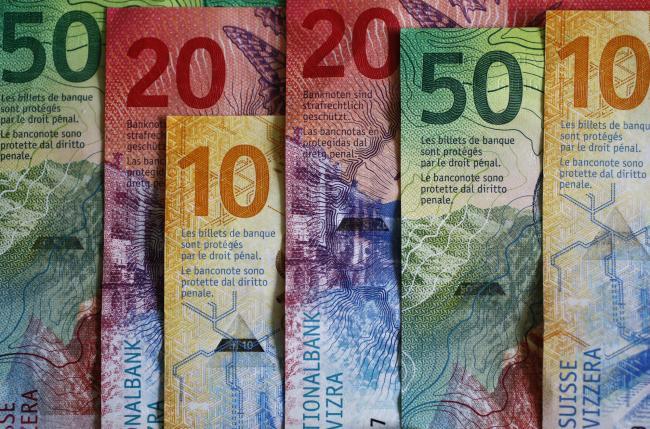(Bloomberg) -- Investors dumping stocks across the globe aren’t putting their money into haven currencies.
The yen barely shifted on Thursday following the biggest equities slump since February, while the Swiss franc actually fell. The reaction in the haven currencies shows this isn’t a panic, but rather a long overdue reversal in the rally in stocks. U.S. Treasuries also slipped, though any flight to safety there could spill over to currencies, according to ING Groep (AS:INGA) NV.
“We saw something similar in February where the spillover into currency markets from a equity-specific sell-off was limited,” said Viraj Patel, a currency strategist at ING. “If this is just ‘deja vu’ when it comes to the equity market sell-off and VIX spike, then it’s just an equity market correction that has a small and trivial spillover into FX and bonds.”
The yen was little changed at 112.24 versus the dollar by 12:30 p.m. in London, while the Swiss franc was down 0.2 percent at 1.1434 per euro. U.S. Treasuries, which rallied on Wednesday, fell back with the 10-year yield up 2 basis points at 3.18 percent.
The Cboe Volatility Index or VIX, Wall Street’s “fear gauge,” spiked to its highest since April on Thursday. While it’s still well away from a peak seen in February, the speed of the climb did catch the currency market’s attention.
Treasury Focus
Patel is watching haven bonds, as a continued stock stock sell-off that pushes yields down by 10 to 20 basis points could trigger a move in currency markets and see the yen appreciate to 110 to the dollar, he predicts. That would be the strongest level for the Japanese currency since Aug. 21.
Until recently any market uncertainty has provided support for the dollar and traditional beneficiaries of risk-off sentiment haven’t been getting the usual traction, said Jeremy Stretch, head of Group-of-10 currency strategy at Canadian Imperial Bank of Commerce.
“The longer term presumptions of risk-off tendencies benefiting the Swissie and the yen are going to come back into play,” Stretch said.
